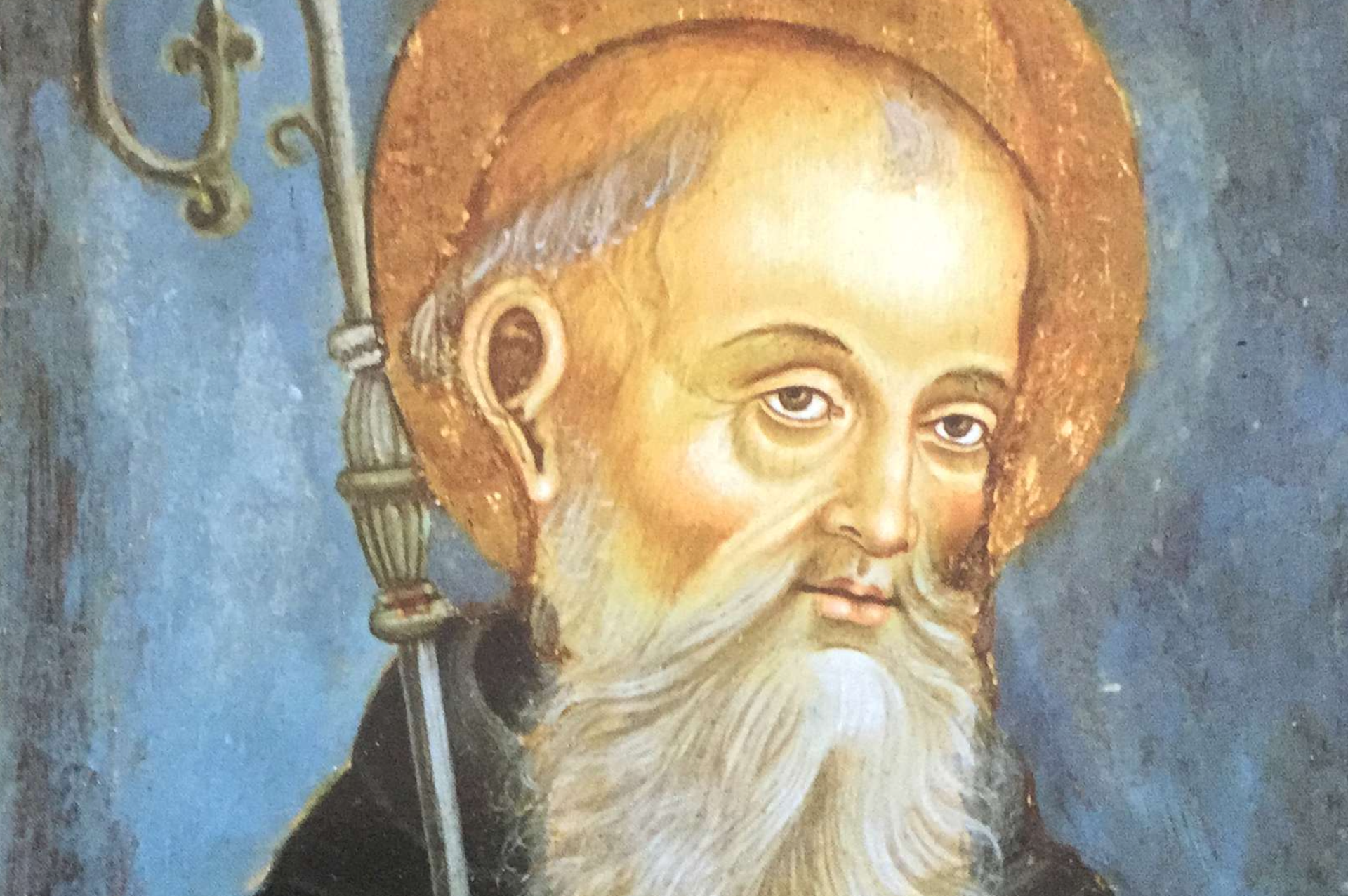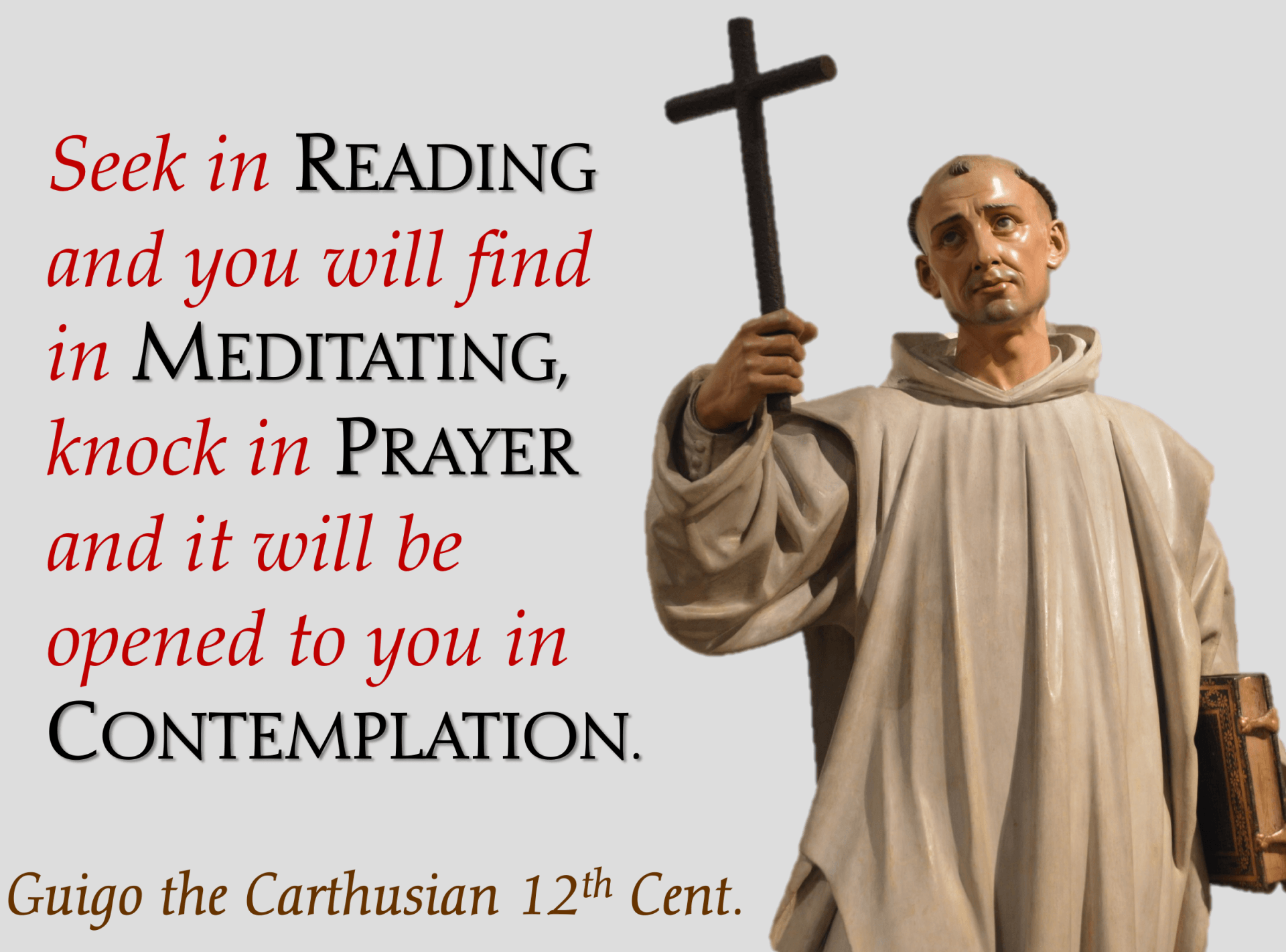Lectio Divina
What is Lectio Divina?
Lectio Divina (or
Lectio for short) is the attentive listening to the voice of God
speaking to us in the Sacred Scriptures. Each day at Belmont we dedicate at least half an hour to this practice so that the Word of God can shape and direct our hearts, lift us up to God in prayer, and out in love to our neighbour.
Lectio is based on the fundamental belief that God
still speaks to us, and the words of scripture are like a sacrament of his presence – a ready way that God who ‘searches us and knows us’ can be present to us in each moment of the day.

St Benedict, with a large ear for listening
St Benedict directs us to this ancient form of prayer in his Rule. He understands that God still speaks to us and comes close to us through his word. The first word of his Rule is “Listen” and goes on to describe that this listening is done with the “ear of the heart.” It echoes the cry to the people of Israel, Shema, Israel: “Hear, O Israel… these words shall be upon your heart”
(Deuteronmy 6:4-7).
For St Benedict this listening should be a daily reality as we seek to follow Christ more closely. He quotes the Psalm: “O that today you would listen to his voice” (Psalm 94). He concludes his Rule by saying “What page, what passage of the Old and New Testament is not the truest guide to human life.”
The Traditional Stages of Lectio
There is no real method to Lectio Divina, but spiritual writers have sought to identify certain steps or moments in its practice. The traditional steps were summarized by Guigo the Carthusian (d. 1188, based on the words of Jesus in Matthew7:7).
"Seek in reading and you will find in meditating;
knock in prayer and it will be opened to you by contemplation"
So he identifies 4 steps in the process. They are an indication of what is going on in our prayer, its different dimensions but most monks would not see it as a step-by step method. But rather we seek to savour God’s word to open ourselves to his direction.

Word into Action
Guido speaks of a ladder that reaches from earth to heaven. But this dialogue with God is so that we might be transformed into the loving creatures he wants us to be. So quite often today a 5th ‘Step’ is added – that of "actio" – action because the word received from God is not to return to him empty but to achieve some definite purpose. It is so that we may become channels of love in our world.
